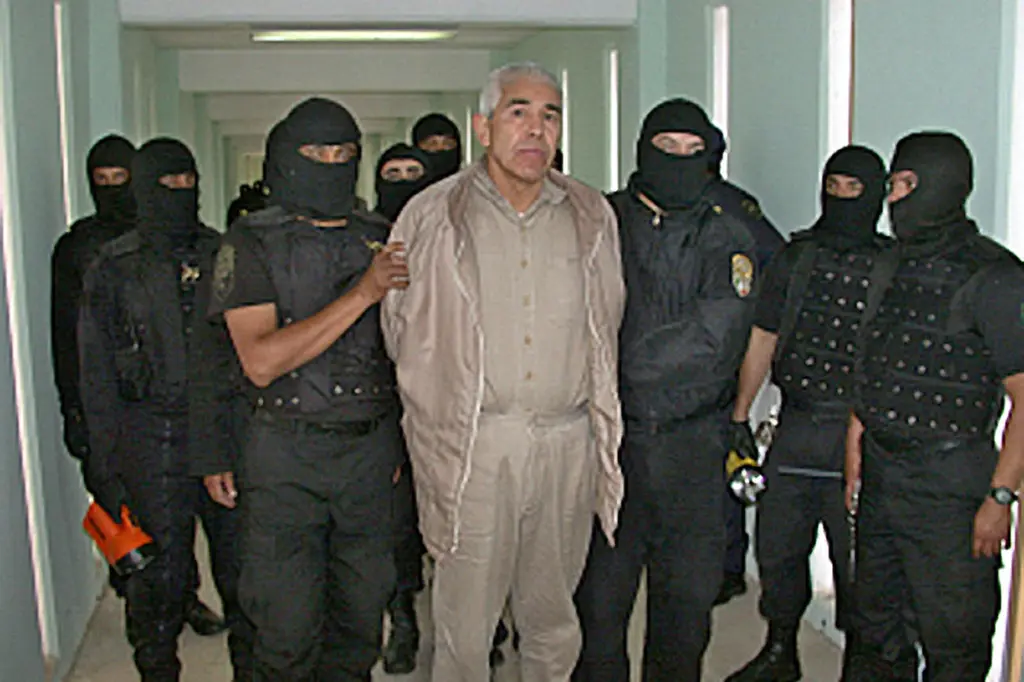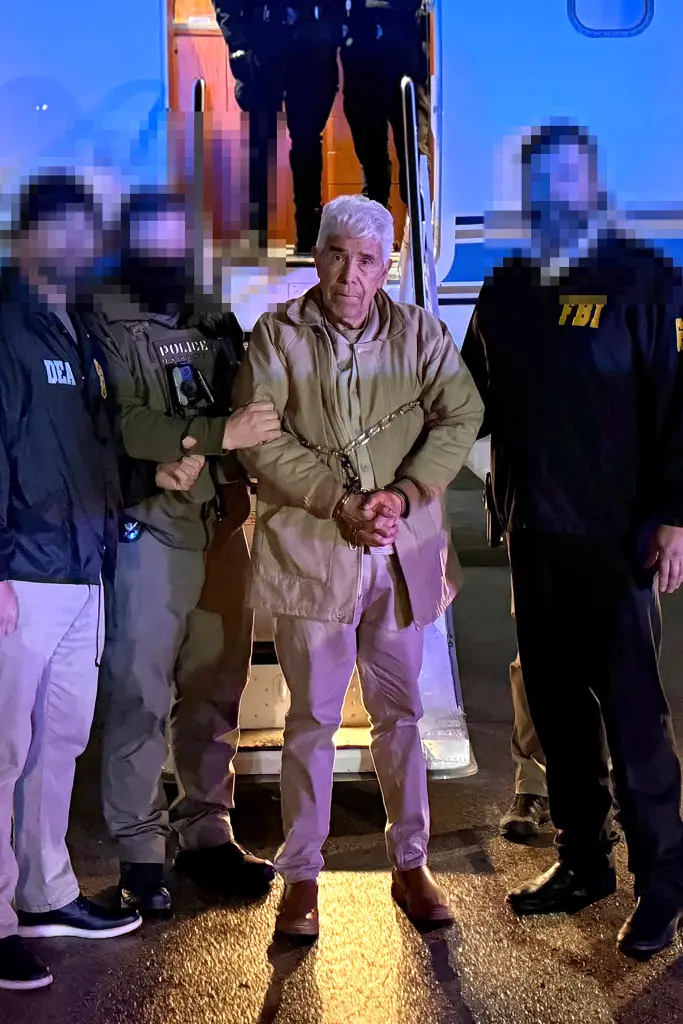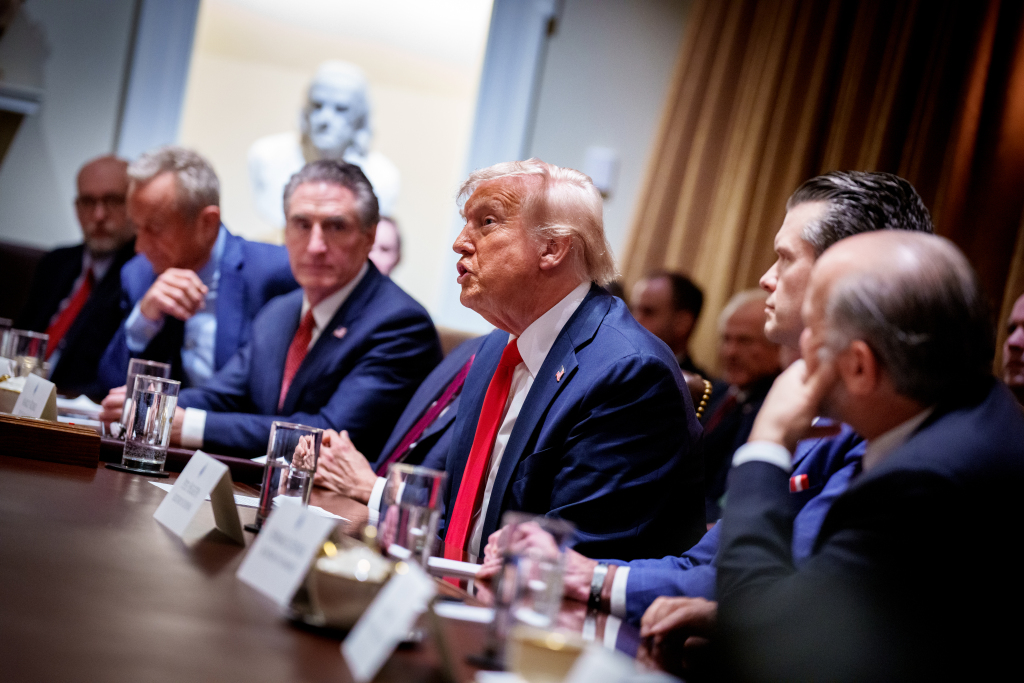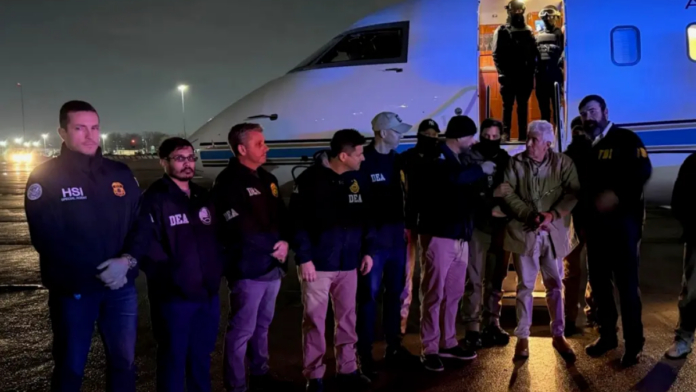One of the most infamous cartel leaders, Rafael Caro Quintero, has been extradited to the United States, arriving in New York City on Thursday night. The 72-year-old, known for orchestrating the 1985 murder of DEA agent Enrique “Kiki” Camarena, is expected to face arraignment in Brooklyn Federal Court on Friday.
A major victory for the DEA

Quintero’s capture marks a historic moment for the DEA, which had long considered him one of its top targets. Former DEA New York chief Ray Donovan described the moment as “bigger than El Chapo” for the agency. “This was personal,” he said, emphasizing the significance of Quintero’s transfer to U.S. custody.
“This is one of the biggest days in decades for DEA agents,” Donovan added. Acting DEA Administrator Derek Maltz also highlighted Quintero’s importance, stating that his name “stands above the rest” among the 29 cartel members handed over by Mexico.
How Mexico’s crackdown led to extradition
Quintero was one of 29 cartel members transferred to the U.S. as Mexico responds to President Donald Trump’s threat of a 25% tariff on Mexican imports if the country does not take stronger action against drug trafficking and illegal immigration.
Many of the extraditions had been delayed under the Biden administration, according to the Department of Justice, but Mexico’s compliance came swiftly after Trump officially designated drug cartels as Foreign Terrorist Organizations.
“These criminals are no longer just drug traffickers—they are terrorists,” said Donovan. He noted that labeling cartel members as terrorists simplifies legal transfers, making extradition easier.
What charges does Quintero face?

Quintero has pending drug-trafficking charges in New York, Texas, and California, though none explicitly charge him with murder. However, prosecutors are expected to introduce evidence linking him to Camarena’s killing once his trial begins.
“When he goes to trial, the Kiki homicide will come out, and the fact that he ordered the killing will be revealed,” Donovan said.
Following El Chapo’s path
Quintero’s extradition closely mirrors that of Joaquín “El Chapo” Guzmán, who was moved to the U.S. in 2017 and later sentenced to life in prison. Quintero is expected to be housed in Brooklyn’s Metropolitan Detention Center before trial.
Trump’s tough stance on cartels

Attorney General Pam Bondi emphasized that the Justice Department is committed to dismantling the cartels.
“As President Trump has made clear, cartels are terrorist groups, and this Department of Justice is devoted to destroying cartels and transnational gangs,” Bondi said. “We will prosecute these criminals to the fullest extent of the law in honor of the brave law enforcement agents who have dedicated their lives to this fight.”
What happens next?
Quintero’s court appearance on Friday will begin the legal process, which could lead to one of the most high-profile cartel trials in decades. Meanwhile, Trump has reiterated his demand for tougher border security and anti-drug measures, warning that the 25% tariff on Mexican imports will proceed as planned unless the flow of narcotics is “seriously limited.”
With Quintero now in U.S. custody, authorities are preparing for a legal battle that could finally bring long-awaited justice for the murder of Kiki Camarena.




